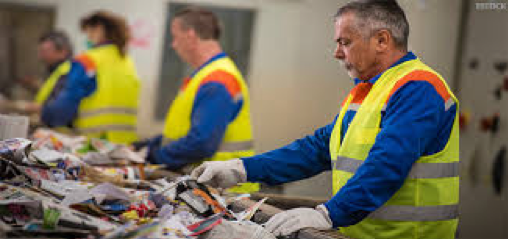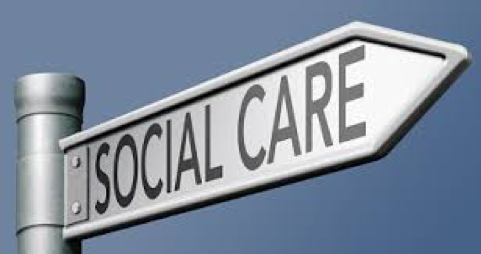Business Administration
Business administration is a widely skilled role; every business needs skilled administrators in order to succeed. As you develop your career and progress onto higher level qualifications, you may move into team leading or management roles, project management, operations or data analysis.
Business Administration pathway typically follows:
Level 1
Level 2 Apprenticeship (Similar to GCSE level)
Level 3 Apprenticeship (Similar to A-level)
Levels 4-5 Apprenticeships or other (similar to Foundation Degree)
Level 6-7 Higher Apprenticeships or other (Similar to Bachelors or Masters Degree)
Click here for more information: https://nationalcareers.service.gov.uk/job-profiles/admin-assistant
Customer Service
Customer Service assistant deal with all types of customers; this could be face-to-face, by phone, web contact and may involve placing orders, selling items and taking payment, reception work and dealing with queries.
As you progress in your career, you may move into management roles, sales, marketing or account handling.
A Customer Service career pathway typically follows:
Level 1
Level 2 Apprenticeship (Similar to GCSE level)
Level 3 Apprenticeship (Similar to A-level)
Levels 4-5 Apprenticeships or other (similar to Foundation Degree)
Level 6-7 Higher Apprenticeships or other (Similar to Bachelors or Masters Degree)
Click here for more information: https://nationalcareers.service.gov.uk/job-profiles/customer-service-assistant
Team Leading and Management
Management jobs usually involve managing people, projects, money or all three. There are different levels of management; managing directors are responsible for a whole business, department managers are in charge of a particular group and line managers oversee one or more staff members.
Not all management jobs involve managing other people. For example, project managers monitor progress of projects to make sure they stay on track and management accountants monitor finances.
A management pathway typically follows:
Level 2 Apprenticeship (Similar to GCSE level)
Level 3 Apprenticeship (Similar to A-level)
Levels 4-5 Apprenticeships or other (similar to Foundation Degree)
Level 6-7 Higher Apprenticeships or other (Similar to Bachelors or Masters Degree)
Click here for more information: https://nationalcareers.service.gov.uk/
Schools, Learning and Teaching
The education sector are the jobs that help other people learn; it can involve learners of all ages, learning about any subject imaginable.
Careers within schools and learning environments are varied and can include administration and finance roles, early years, primary or secondary education, special educational needs and disabilities, further and higher education as well as vocational learning. The entry into teaching can also range from Classroom assistant, Newly qualified teacher, Post Graduate Teacher Training and apprenticeships.
Along with a passion for educating others, you will also need IT skills, administration and self-organisation, planning, time management and great communication skills
https://getintoteaching.education.gov.uk/explore-my-options
https://nationalcareers.service.gov.uk/
Waste Operative
A waste operative role usually involves using lifting machinery to help you lift and sort waste, checking the type of materials for recycling, sorting waste and removing non-recyclable items, inspecting materials for any contamination, speaking to members of the public about recycling schemes and cleaning and maintaining equipment.
As you progress your career, you may move into customer service, team leading, management, health and safety, site manager or similar roles.
A waste operative career pathway typically follows:
Level 2 Apprenticeship (Similar to GCSE level)
Level 3 Apprenticeship (Similar to A-level)
Levels 4-5 Apprenticeships or other (similar to Foundation Degree)
Level 6-7 Higher Apprenticeships or other (Similar to Bachelors or Masters Degree)
https://nationalcareers.service.gov.uk/job-profiles/recycling-operative
Hair and Beauty
Within the hair and beauty industry, your role is likely to include greeting customers, shampooing and conditioning hair, cutting and styling, supplies are ready for use, keeping the salon clean and tidy, colouring, perming or straightening, advising on minor hair and scalp problems, keeping client records, making appointments and taking payments, giving a facial by cleansing, massaging and toning a client’s skin, shaping eyebrows and colouring eyelashes, giving manicure, pedicure or other nail treatment like extensions and nail art, removing unwanted facial and body hair, giving non-surgical skin improvement treatments and spray tanning.
Typical roles with this sector include Beauty therapist or junior hair stylist, senior therapist or hairdresser, assistant manager, manager, salon or spa manger/owner, tutor, regional support and management.
Level 2 Apprenticeship (Similar to GCSE level)
Level 3 Apprenticeship (Similar to A-level)
Levels 4-5 Apprenticeships or other (similar to Foundation Degree)
Level 6-7 Higher Apprenticeships or other (Similar to Bachelors or Masters Degree)
https://www.vtct.org.uk//pathways/
https://nationalcareers.service.gov.uk/
Health and Social Care
Health and social care is a rewarding career providing physical, emotional and social support to help people live their lives while maintaining their independence, dignity and control. Health and social care takes place in a variety of settings such as helping people in their own homes, in residential homes or in a number of other places such as day centres or supported housing. There are a wide range of careers available within the health and social care sector including activities worker, care worker, personal assistant, rehabilitation worker, team leader or supervisor or manager. You may want to specialise and become a specialist coordinator, such as dementia or end of life care coordinator.
In the community, you may provide welfare, benefits and employment advice or use your skills to educate others.
A typical career pathway may include:
Level 2 Apprenticeship (Similar to GCSE level)
Level 3 Apprenticeship (Similar to A-level)
Levels 4-5 Apprenticeships or other (similar to Foundation Degree)
Level 6-7 Higher Apprenticeships or other (Similar to Bachelors or Masters Degree)
https://www.skillsforcare.org.uk/Careers-in-care/Job-roles/Job-roles-in-social-care.aspx
https://nationalcareers.service.gov.uk/
Safety in the Workplace
Health and safety advisers have a responsibility to reduce accidents, injury and health problems in the workplace. As part of the role, you will work todevelop safety policies and procedures, advise and train staff on health and safety practices, making regular inspections and carry out risk assessments. You will also investigate and record accidents in the workplace, work with relevant inspectors and trade unions and promote good standards of health and safety.
A health and safety role can be varied and you could progress into management, consultant, specialist, lecturing and educating others and research.
Typical careers in health and safety follow this pathway:
Level 3 Apprenticeship (Similar to A-level)
Levels 4-5 Apprenticeships or other (similar to Foundation Degree)
Level 6-7 Higher Apprenticeships or other (Similar to Bachelors or Masters Degree)
https://nationalcareers.service.gov.uk/job-profiles/health-and-safety-adviser









